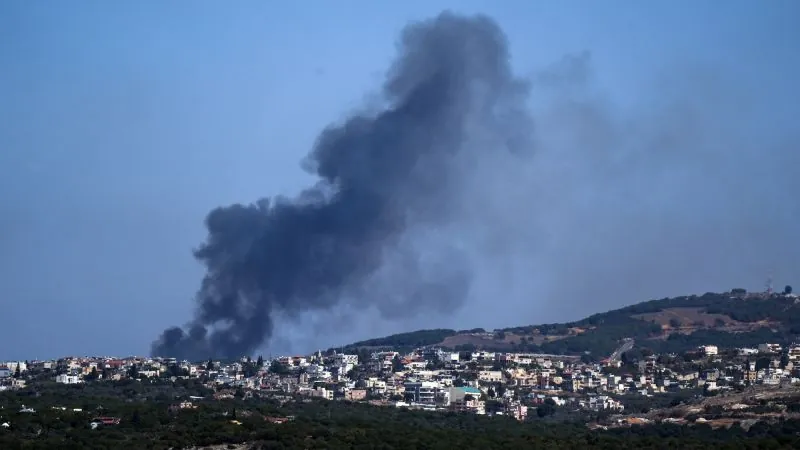
Breaking News: Intense Strikes in Gaza and Lebanon Amid Escalating Conflict
2024-10-11
Author: Chun
As the conflict between Israel, Hamas, and Hezbollah intensifies, the humanitarian situation in Gaza worsens, leading to significant closures of essential services. Reports reveal that two key bakeries in Deir al-Balah, Al-Banna and Zadna, have ceased operations due to severe shortages of flour and fuel, resulting in dire consequences for families in the area. This closure creates a ripple effect in the already fragile food supply, as parents struggle to find enough bread to feed their children amid increasing desperation.
Ahmad Abed, a bakery employee and father of six, shared his grim reality: “The day I work, I can feed my family. The day I don’t, we don’t eat.” The ongoing conflict has left locals in dire need of basic necessities, with humanitarian agencies echoing warnings about the suffocating blockade impacting the civilian population.
Recent communications between U.S. Secretary of Defense Lloyd Austin and Israeli Defense Minister Yoav Gallant highlighted concerns over violence in southern Lebanon, where UN peacekeepers have reportedly been injured by Israeli fire. The United Nations Interim Force in Lebanon (UNIFIL) has described the situation as "increasingly alarming," calling for heightened measures to ensure the safety of peacekeepers caught in the crossfire.
The Israeli military is facing heavy scrutiny with reports indicating that operations have resulted in over 1,400 casualties in Lebanon just since late last month alone. There is a growing call from the international community, including the United States, to shift towards diplomatic solutions in resolving the persistent unrest along the Israeli-Lebanese border.
In Gaza, hospitals face catastrophic fuel shortages. Dr. Hussam Abu Saifiya, director of the Kamal Adwan Hospital, warned that patients reliant on life-support equipment will "die" without fuel supplies. Many healthcare facilities in the northern regions are on the brink of shutdown, as no food or medical supplies have entered since the start of October, putting a million people at potential risk of starvation.
The World Food Programme (WFP) stated that aid deliveries have drastically declined, with starvation dangers looming larger than ever. In previous months, aid levels had dropped significantly, falling from 700 trucks in August to a mere 400 in September. The humanitarian crisis is aggravated further by Israel's renewed ground operations in Gaza, prompting new evacuation orders for residents.
International relations remain tense as the United Arab Emirates expresses profound concern regarding the war's expansion while urging the U.S. to mediate tensions. Meanwhile, Russian President Vladimir Putin is reportedly conducting discussions with Iran's leaders amidst solidarity against the U.S. and regional adversaries.
As the conflict continues, peacekeeping missions such as UNIFIL tread a dangerously thin line. Indonesia condemned Israel following the injury of its peacekeepers, asserting that such actions threaten international stability. In contrast, U.S. Secretary of State Antony Blinken has reiterated the United States' commitment to address the humanitarian crisis while fostering diplomacy in the region.
The spiraling conflicts not only have dire implications for regional stability but could also lead to significant global ramifications, particularly concerning oil supplies, as escalations could disrupt production channels critical to the world economy.
As tensions peak and civilian tragedies proliferate, the call for renewed efforts towards peace echoes louder, with thousands caught in a relentless cycle of violence. The international community watches closely—awaiting actions to halt the looming humanitarian disaster.



 Brasil (PT)
Brasil (PT)
 Canada (EN)
Canada (EN)
 Chile (ES)
Chile (ES)
 España (ES)
España (ES)
 France (FR)
France (FR)
 Hong Kong (EN)
Hong Kong (EN)
 Italia (IT)
Italia (IT)
 日本 (JA)
日本 (JA)
 Magyarország (HU)
Magyarország (HU)
 Norge (NO)
Norge (NO)
 Polska (PL)
Polska (PL)
 Schweiz (DE)
Schweiz (DE)
 Singapore (EN)
Singapore (EN)
 Sverige (SV)
Sverige (SV)
 Suomi (FI)
Suomi (FI)
 Türkiye (TR)
Türkiye (TR)